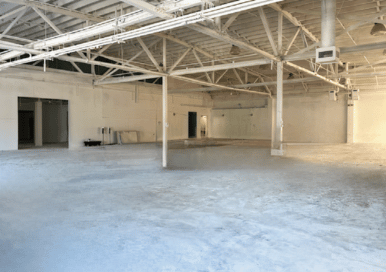
1699 West Grand Ave
Oakland, CAR&D Campus - Ready for Occupancy

Are you thinking about getting into commercial real estate?
Whether you’re drawn by the potential for lucrative deals or the dynamic nature of the industry, getting started can feel daunting.
I’ve seen firsthand the amazing opportunities that await those who are prepared to dive in and make their mark. This guide will provide you with the foundational knowledge and actionable steps needed to start your journey into commercial real estate, even if you have no experience.
Commercial real estate includes properties used for business purposes such as office buildings, industrial facilities, retail spaces, and multifamily housing units. Each type offers unique opportunities and challenges, making this a dynamic and exciting field.
Commercial real estate is not just about properties; it’s about potential. This industry offers a lot of opportunities for those willing to put in the work. Here’s why it’s such a compelling career path:
Understand the different types of commercial properties and how they perform in various economic conditions. Identify key players and major firms in the industry to set career goals and find potential mentors or employers.
Consider exploring opportunities beyond your home country to expand your horizons. Programs like Saint Lucia Citizenship by Investment can open doors to new markets and business prospects. This program offers citizenship through real estate investments, granting access to a dynamic and growing economy. Saint Lucia stands out with its natural beauty, stable government policies, and tax incentives, making it an appealing option for international real estate investors.
In general, Caribbean countries offer diverse real estate opportunities, including luxury resorts, high-end condos, commercial office spaces, and industrial warehouses. These investments can provide steady income and long-term value growth, making them an excellent choice for those looking to expand their investment portfolio.
Education can provide a strong foundation for your career in commercial real estate. Consider the following:
Networking is crucial in commercial real estate. The relationships you build can lead to job opportunities, partnerships, and valuable advice.
Experience is invaluable when entering commercial real estate. Here’s how to get your foot in the door:
Success in commercial real estate requires a diverse skill set. Focus on developing these key skills:
Cold calling is an integral part of getting into commercial real estate, especially when you’re starting out. It involves reaching out to potential clients, property owners, and other stakeholders to introduce yourself and your services. While it can be challenging and often met with rejection, cold calling is an effective way to build your network, gain market insights, and identify opportunities.
Developing a thick skin and honing your communication skills are essential to succeed in this area. We provide scripts and training to help you navigate this crucial aspect of the business. Over time, with persistence and practice, you’ll find that these calls become a valuable tool in establishing your presence and credibility in the commercial real estate industry.
Getting into the commercial real estate industry can feel like an uphill battle, especially in a competitive market. One of the biggest challenges is standing out among a sea of candidates.
To distinguish yourself, focus on building a unique personal brand. Highlight your strengths, whether it’s a strong financial background, exceptional negotiation skills, or a deep understanding of local markets. Tailor your resume and LinkedIn profile to reflect these qualities and engage actively in industry forums and groups.
If you’re wondering how to get into commercial real estate with no experience, start by seeking out internships, entry-level positions, or even volunteer opportunities. Gaining practical exposure, even in small ways, can build your credibility. At IPG, we value enthusiasm and a willingness to learn, and we mentor and guide those who show potential.
The commercial real estate journey is filled with highs and lows, and maintaining motivation can be challenging, especially when facing rejection and setbacks. I find that it is very important to develop a resilient mindset.
Understand that rejection is part of the process, and each ‘no’ brings you closer to a ‘yes.’
Staying motivated also involves setting clear, achievable goals. Break your long-term objectives into smaller, manageable tasks and celebrate your progress along the way. Surround yourself with a supportive network – colleagues, mentors, and industry peers who can offer advice and encouragement.
Getting into the commercial real estate industry can be both exciting and challenging. Remember, understanding the industry, obtaining relevant education and certifications, building a strong network, and gaining practical experience are key steps to your success. Equip yourself with the necessary skills (and patience.. and lots of coffee) and prepare for the inevitable challenges with persistence and a positive mindset.
Whether you’re just exploring or ready to dive in, our team is here to support you. Reach out to us for expert advice and guidance on your path to success.

R&D Campus - Ready for Occupancy

Premier Potrero Hill Standalone Building.